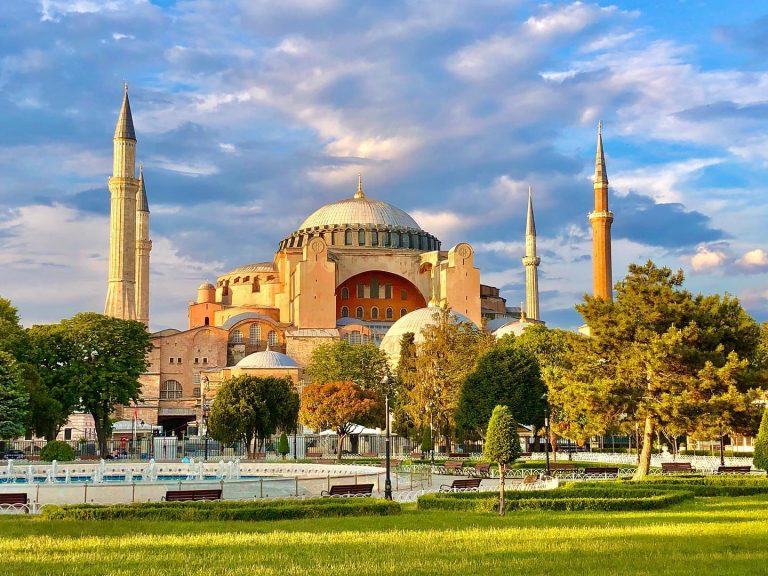
In a 24 July 2020 statement on Hagia Sophia, Religions for Peace reiterated its commitment to the universality of heritage as something that can create peace and respect for all faiths:
We, men and women faith leaders, come together in this moment of history, to speak as one voice.[1] We refer to the powerful statements already made about events around the Hagia Sophia, by some of us – including His All Holiness Ecumenical Patriarch Bartholomew, His Holiness Pope Francis, the World Council of Churches, Middle East Council of Churches and KAICIID. As we hear our Christian brethren, we raise our voices as faith leaders representing Baháʼí, Buddhist, Christian, Hindu, Indigenous Spirituality, Jain, Jewish, Muslim, Sikh and Zoroastrian faiths.
Hagia Sophia, a UNESCO World Heritage site, is meant to be shared with all the world. We are committed to the universality of heritage as something that can create peace and respect for all faiths.
As faith leaders, we recognize and accept the sacred duty and the responsibilities of appealing to the highest instincts of our shared humanity, and service to the Divine within and among all.
As such:
We call for calm, in times when some may see the use of religious sentiments and institutions in a manner that could be deemed as divisive, thus pitting some believers against one another.
We recognize that there are deep-rooted concerns around the (ab)use of religious sentiments, and symbols, for political purposes.
We stand on the side of peace, and of deliberate, intentional, coexistence, particularly as we hear of the voices, and see the actions, of divisiveness and hatred from many quarters.
We are determined that faith not be utilized in the service of the interests of the few today. Rather, we rally the spirit of all, for a peace that goes beyond any one faith, any race, any gender, any ethnicity, any label, any institution, and any nation.
We appreciate the civil state that guarantees peace and equal freedom to all inhabitants, respects religious liberties, ensures equal rights to all religions and guarantees the rule of law.
We are committed to modelling the call we make to all: to show mercy, love and compassion, precisely in these moments in our shared history, and we appeal that any and all power be used with compassion and respect for one another.
Ours are the voices, and hands, raised, from all pulpits – physical, virtual, visible and invisible – to urge for mercy and respect towards one another, to declare our love for one another as people of faith, and to demonstrate compassion – especially towards those who come from different faiths – in these troubled times.
Our houses of worship reside, foremost, inside each and all of us on this earth. But we recognise that there are deep rooted ties to various religious houses and sites of worship, by different faith groups. Thus we believe that respecting the sanctity and symbolism of such places, is honouring our collective human dignity.
[1] The diverse leaders of Religions for Peace steward the world’s largest multi-religious organization with affiliated multi-religious leadership platforms in 90 countries and 6 regions. They represent the wisdom and compassion of all faith traditions. This statement was agreed to by the majority of the Religions for Peace global membership, inclusive of Indigenous, Jewish, Hindu, Zoroastrian, Jain, Buddhist, Christian, Islamic, Sikh, and Bahá’í leaders and communities.
Photo of Hagia Sophia by Nikos Papachristou.